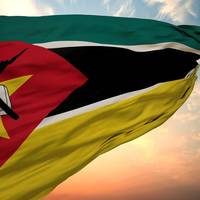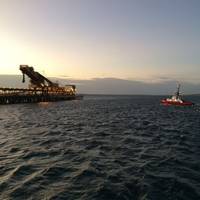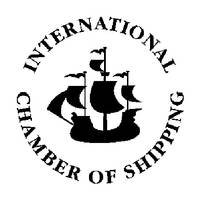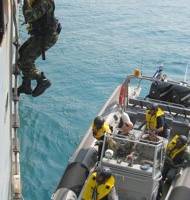What Does the Future Look Like for LNG Projects in Mozambique?

What are the implications of the conflict in Cabo Delgado for maritime security in East Africa and the Mozambique Channel?Following the recent attacks on the coastal town of Palma in March-April by Ahlu Sunnah Wa-Jamamah (ASWJ) insurgents in Mozambique’s troubled Cabo Delgado region, it is pertinent to assess the future trajectory of the conflict in the commercial maritime domain and the challenges it may pose to trade within the region. During the battle for Mocimboa da Praia…
IMO Workshop on Protecting Seas in Africa
Designating an International Maritime Organization (IMO) Particularly Sensitive Sea Area (PSSA) is a recognition that the identified area may be vulnerable to potential impacts of international shipping.In a PSSA, associated protective measures can be proposed and adopted, such as ship routeing systems, for example, areas to be avoided by ships or no-anchoring areas. But first, the area needs to be identified.A sub-regional workshop in Nosy-Be, Madagascar (5 -7 November) is helping participants from Kenya, Madagascar, Mozambique, South Africa and the United Republic of Tanzania, to identify potential marine areas that could be designated as PSSAs.Marine areas may be designated a PSSA if they fulfil a number of criteria…
KOTUG Begins Operations in Mozambique

KOTUG Mozambique has begun exclusive port and terminal towage services with two Rotortugs in the new port of Nacala-a-Velha in northern Mozambique for Nacala Development Corridor (CDN), effective May 5, 2016. The RT Magic and RT Spirit welcomed the largest bulk carrier Shining Dragon, to assist her safely to her berth. The Rotortugs, pioneered by KOTUG and featuring three separate azimuth propulsion units to provide improved vessel safety, power and maneuverability, were selected by CDN to optimize turn-around time and to have minimum tugs needed per ship assistance.
Malagasy Navy Undergoes Antipiracy Training
Global business risk consultancy Drum Cussac Ltd. delivered an antipiracy training program for the Malagasy Navy at the Naval Base in Diego Suarez, Madagascar. It is the first time that a private company has been permitted to partner with the Malagasy Navy. A team of Drum Cussac’s skilled and experienced risk management consultants worked closely with thirty Malagasy Naval personnel to enhance the Navy’s anti-piracy capability when operating in an offshore environment. Although reported cases of offshore security incidents in East Africa have fallen recently, the rapid development of Madagascar’s offshore oil and gas industry has led to a growing need for more robust security in the region.
ICS Opposes IMO-Proposed Mozambique Channel Routing

At a meeting of the International Maritime Organization (IMO) Sub-Committee on Safety of Navigation (2- 6 July in London) the International Chamber of Shipping (ICS) - which represents global shipowners and 80% of the world merchant fleet - will be opposing a proposal to establish a new recommended route for all ships in the Mozambique Channel that would be approximately 1,000 miles long. The proposal has been made by Comoros, France, Madagascar, Mauritius, Mozambique, the Seychelles, South Africa and Tanzania, having been given impetus by work conducted by the World Bank.
Weekly Piracy Update from NATO
The increase of attacks within the past week is evidence that pirate activity can still take place during the South-West Monsoon and Masters should remain vigilant to this threat. On 18 Jun 2012 a merchant vessel was attacked by 3 skiffs at position 14 28 N 050 45 E. Each skiff had 5-6 persons on board. Small arms and Rocket Propelled Grenades (RPGs) were used against the merchant vessel. Early morning 20 Jun 2012 a merchant vessel was attacked by 1 skiff with 5-6 persons aboard at position 20 50N 059 30E. The skiff fired upon the vessel with small arms at a distance of 1nm. Rocket Propelled Grenades (RPGs) were also seen aboard the skiff. Due to the South-West monsoon between June and September, sea conditions in the HRA are expected to be generally unfavourable for small boats.
Pirates Low Profile in Monsoon Season
During the reporting period 7 – 13, June 2012, the number of piracy incidents in the High Risk Area (HRA) has remained low, with no incidents reported. Due to the South-West monsoon between June and September, sea conditions in the HRA are expected to be generally unfavourable for small boats. Pirate Activity Groups (PAG) will likely continue to focus their limited efforts in the Northern Arabian Sea (NAS), Gulf of Oman (GOO) as well as in the Gulf of Aden (GOA) and South Red Sea (SRS). There have been no significant changes over the past week. Masters are advised that fishing activity is expected to continue and likely increase in this area over the next few months. There have been no significant changes over last week in this region.
IMO Signs-up with UN & EU on Counter-piracy

The commitment of the International Maritime Organization (IMO) to combat piracy off the coast of Somalia through boosting capacity building in the region has been underlined with the signing of five strategic partnerships with a number of UN agencies and the EU, following a Conference on Capacity Building to Counter Piracy off the Coast of Somalia, held at IMO Headquarters in London on 15 May 2012. The Conference was attended by some 300 delegates from member States as well as a number of organizations.
Marad Advisory (2011-05) to Mariners: Risk to Vessels Transiting High Risk Waters
1. THIS MARAD ADVISORY PROVIDES INFORMATION ON THE RISK TO VESSELS TRANSITING THE HIGH RISK WATERS (HRW) OF THE GULF OF ADEN (GOA), RED SEA, INDIAN OCEAN, ARABIAN SEA AND WATERS OFF THE HORN OF AFRICA (SOMALIA). 2. THIS ADVISORY WILL BE PUBLISHED ON THE MARAD WEB SITE AT WWW.MARAD.DOT.GOV UNDER THE HORN OF AFRICA PIRACY PORTAL AND ON THE US COAST GUARD HOMEPORT SITE AT HOMEPORT.USCG.MIL/PIRACY. OTHER PERTINENT INFORMATION IS ALSO POSTED ON THESE WEB SITES. 3. U.S.-FLAG OPERATORS WITH SHIPS IN THE AFFECTED AREAS ARE REQUESTED TO FORWARD THIS ADVISORY TO THEIR SHIPS BY THE MOST EXPEDITIOUS MEANS. 4. U.S.- FLAG SHIPS OPERATING IN HRW ARE REQUIRED TO COMPLY WITH US COAST GUARD MARITIME SECURITY (MARSEC) DIRECTIVE 104-6 (CURRENT VERSION).
USCG Special Statement for Yachts, Somalia Piracy
The International Superyacht Society (ISS) received the following communication from CDR David G. McClellan, Chief, Prevention Operations Department, USCG Sector Miami. He has that this message be distributed to all mariners. This is critical information for persons either planning or knowing parties planning to sail in the area that transverses the seas off the Coast of Somalia in the Gulf of Aden and the Arabian Sea South to the Mozambique Channel and East to the coast of India. Per CDR McClellan, Internet release is authorized. 1. ON 18 FEB 11, A U.S. REGISTERED SAILING VESSEL WITH 4 US CITIZENS ON BOARD WAS HIJACKED BY SOMALI PIRATES IN THE ARABIAN SEA, 282NM SE OF SUR, OMAN. DURING NEGOTIATIONS FOR RELEASE OF THE VESSEL, THE 4 US CITIZENS ONBOARD WERE KILLED.
Arming Vessels to Combat Piracy
A top Navy commander suggested that commercial vessels should arm themselves when traveling through pirate-infested waters off the Somali coast. Navy Adm. Mark P. Fitzgerald, commander of U.S. naval forces in Europe and Africa and of NATO’s Allied Joint Task Force Command Naples, told Pentagon reporters that the scope of the piracy problem is too great to be policed by military vessels alone. On an average day, 30 to 40 ships comprising international maritime forces monitor pirate activity in the Somali basin and the western Indian Ocean, Fitzgerald said, adding that five to 10 of these ships at any given time are American vessels. Another issue, the admiral said, is what to do with pirates who are captured.
Union Complains of Unsafe Ships
Thousands of seafarers risk their lives on unsafe cargo vessels that daily enter the East African ports of Mombasa and Dar es Salaam, trade union officials said last week. An estimated 85 percent of all vessels calling at the Kenyan and Tanzanian ports do not meet basic international safety regulations. "They are sub-standard in terms of accommodation, in terms of conditions in general and in terms of safety," Juma Khamis, regional chairman for Africa of the International Federation of Transport Workers (ITF), said on Tuesday. The majority of these sub-standard vessels sail under Flags of Convenience (FOCs), allowing the owners to skimp on safety regulations and putting crews in danger not just of sinking but of potentially life-threatening equipment on board.





